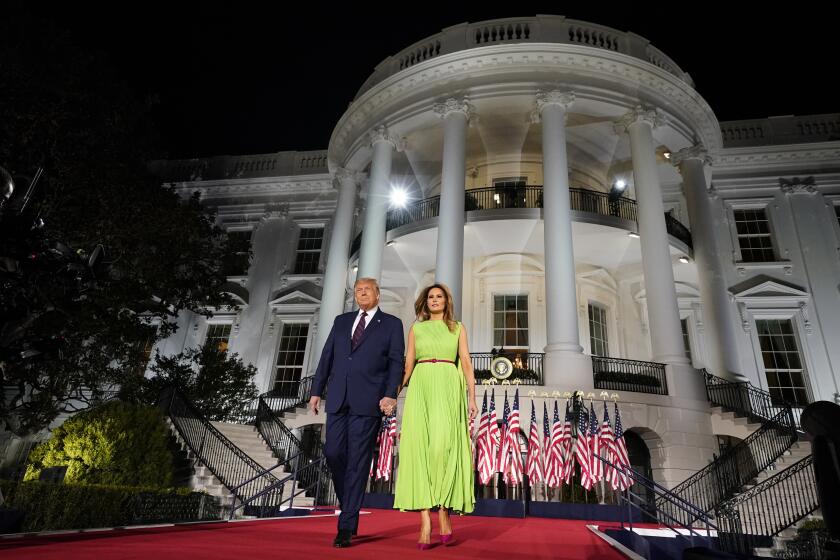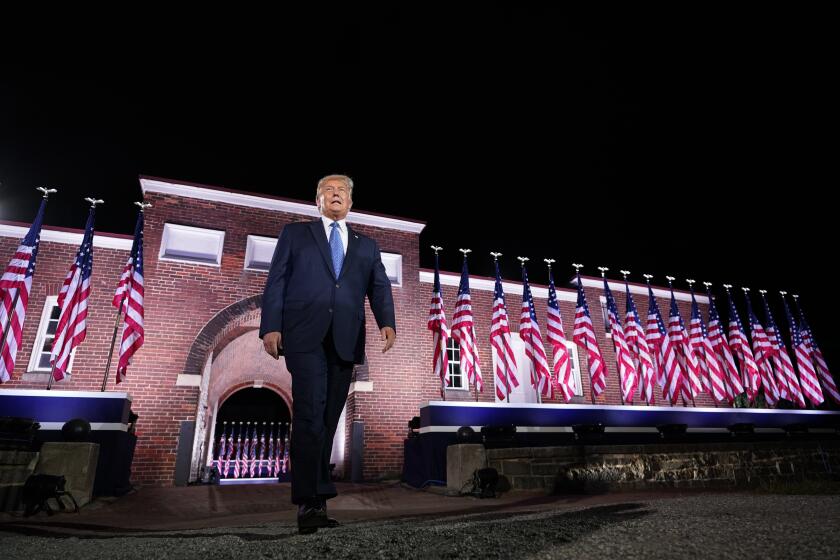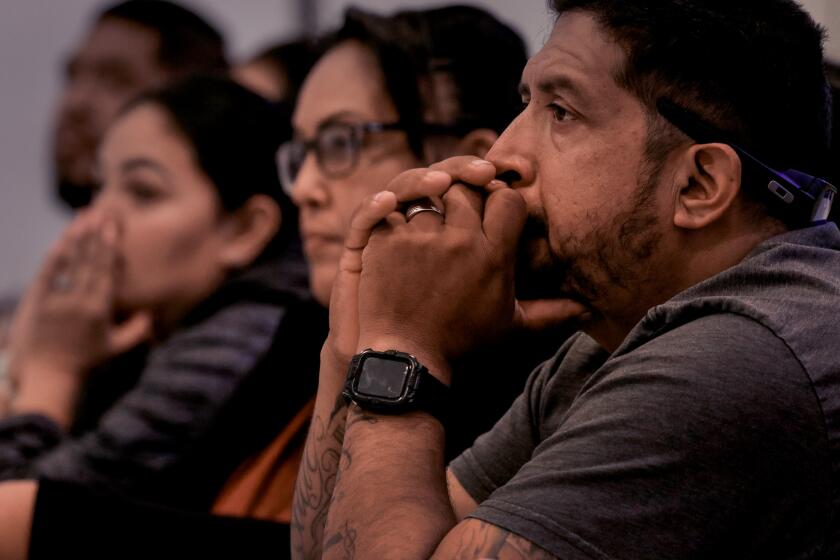Trump blows up compassionate image portrayed at RNC
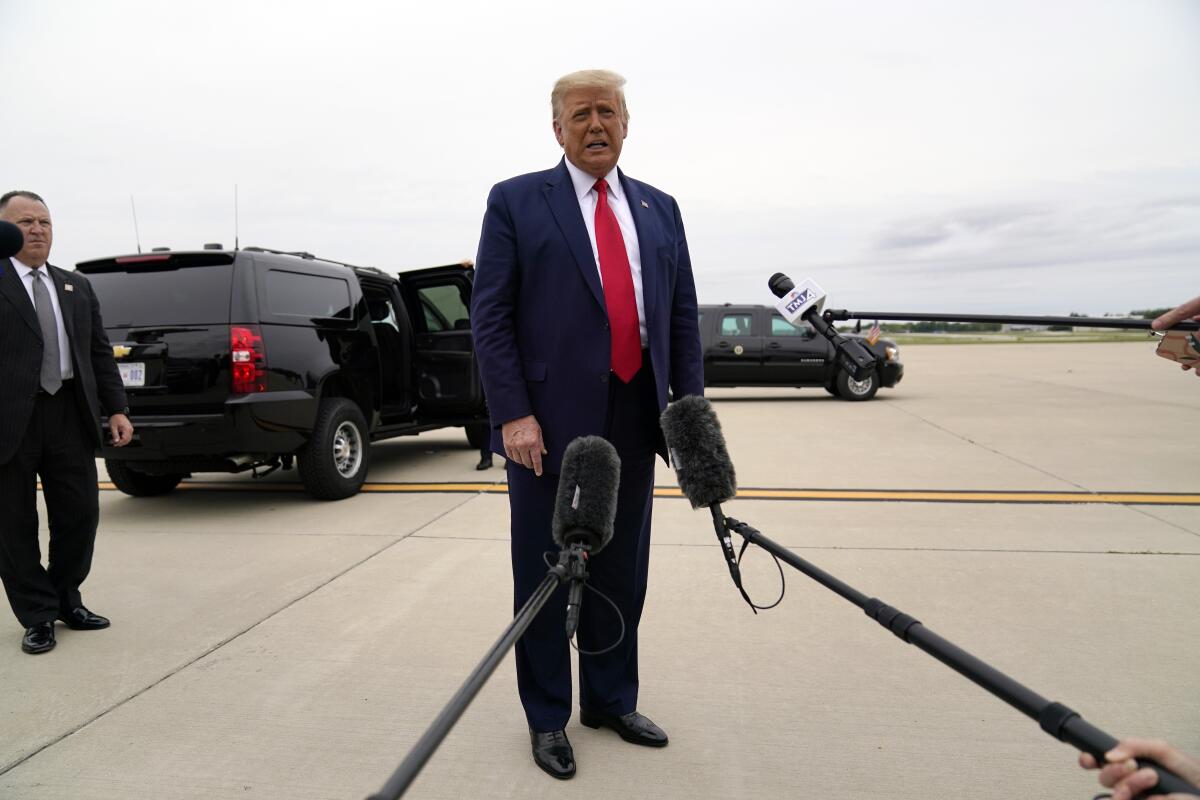
WASHINGTON — Speaker after speaker at last week’s Republican National Convention painted a benign portrait of President Trump as compassionate, citing his call to a surgery patient and long-ago visit to a theme park, seeking to soften his image as racist and belligerent.
Trump has spent nearly every day since blowing up the kinder, gentler version.
He compared a cop who shot a Black man to a golfer who chokes and misses “a three-foot putt,” shared a fringe conspiracy theory that the nation’s protests are an organized coup against him, and described Black Lives Matter, a driving force in the movement for racial justice, as a “Marxist organization” that is “bad for Black people.”
Trump in his RNC speech skips a chance to promote racial healing and end police brutality.
He reposted a baseless theory that the coronavirus has killed only 9,000 Americans and not 184,000. He warned darkly about “thugs” in “black uniforms” boarding a plane somewhere. And he has defended a 17-year-old charged with killing two protesters with a military-style rifle in Kenosha, Wis., suggesting it was self-defense.
Visiting Kenosha with Atty. Gen. William Barr on Tuesday, over the objections of local officials who feared the president would inflame tensions, Trump denounced the protests that have continued since police shot Jacob Blake seven times in the back last week as “anti-American riots.”
“These are not acts of peaceful protests, but really domestic terror,” he said.
The president’s flood of falsehoods and distortion has diverted the campaign’s focus, at least for now, from a deadly pandemic and double-digit unemployment to the scattered violence among the mostly peaceful protests since the police killing of George Floyd, another Black man, in Minneapolis on Memorial Day.
The shift was the latest sign that Trump is adept at crude political messaging, taking advantage of the nightly video footage of fires and surging protesters, and the absence of similarly arresting pictures of the nearly 1,000 Americans still dying each day of an invisible contagion.
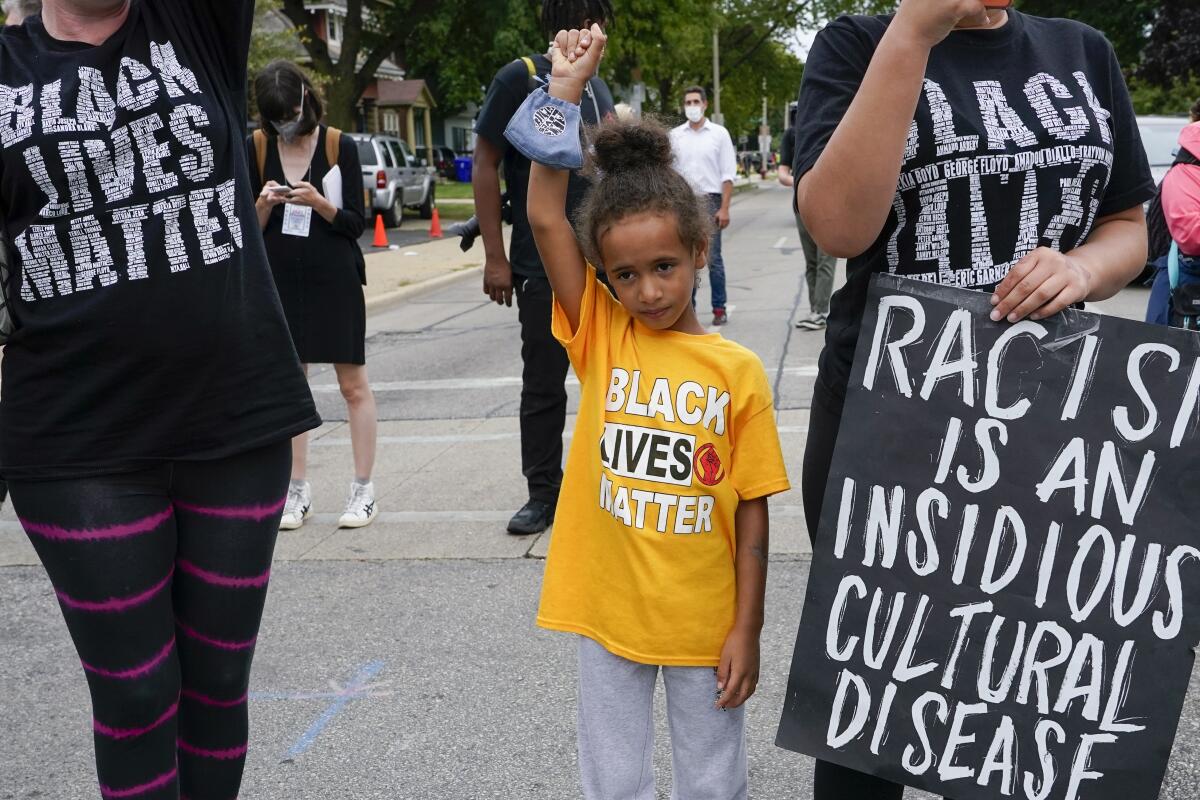
But Trump’s incendiary rhetoric also exposes the futility of Republican efforts to sand down his jagged edges as the race against Democratic nominee Joe Biden moves into the homestretch.
Convention programmers “knew exactly what they needed to do to fix Humpty Dumpty,” said Stuart Stevens, a veteran Republican political operative who opposes the president. “Now that they can’t program it, what Trump is doing is completely contradictory.”
During Trump’s post-convention rally Friday in Londonderry, N.H., he seemed visibly relieved to be unshackled from a script, delivering a circuitous and rambling speech in which he described protesters as “thugs” and “anarchists.” Trump sometimes barely finished a thought before starting a new one.
It’s a contrast to the closing weeks of the 2016 presidential race, when Trump maintained an unusual level of discipline by his own standards, focusing on the economy and his promise to “drain the swamp” in Washington.
With the conventions over, President Trump continues to trail Joe Biden. Trump has lost ground among some key blocs of his 2016 vote.
“His message was angry and fiery, so it was easier for him to stay on message,” said John Podesta, who chaired Hillary Clinton’s unsuccessful campaign.
Lynn Vavreck, a professor of politics and public policy at UCLA, said Trump’s attacks can be politically effective no matter how erroneous they are.
“Racial attitudes still get activated,” Vavreck said. “Now it’s about Black Americans, where in 2016 it was about undocumented immigrants and Muslims.”
Even though Biden has repeatedly denied Trump’s false charge that he wants to defund police, Democrats writ large have embraced the protests and the cause of racial redress that drives them.
“Yes, this is happening on ‘Trump’s watch,’ but it’s hard for Biden too because the protests are not coming from Trump’s side,” Vavreck said.
Polls show marginal improvement for Trump since the Republican convention, but it’s too soon to say if the gains will last or if he can overcome Biden’s lead. Trump’s harsh tactics could remind voters — particularly suburban white women, a key demographic in this election — why many have lost faith in his leadership.
“The president is most comfortable in the world of ‘law and order.’ It is, on paper, a place where he could have some advantages,” said Amy Walter, national editor at the nonpartisan Cook Political Report.
But he “loses some of that advantage when he chooses to spend time either in conspiracy theories or ... in keeping the temperature up rather than lowering it,” she added.
Three summers ago, after white supremacists and neo-Nazis clashed with protesters seeking removal of a Confederate statue in Charlottesville, Va., Trump praised “very fine people on both sides” of the violence. It sparked bipartisan outrage, but the backlash faded as other administration scandals emerged.
Now Trump has a more difficult challenge — highlighting the violence as a political cudgel against Biden while trying to ensure that voters don’t hold him responsible for the unrest unfolding while he’s in charge.
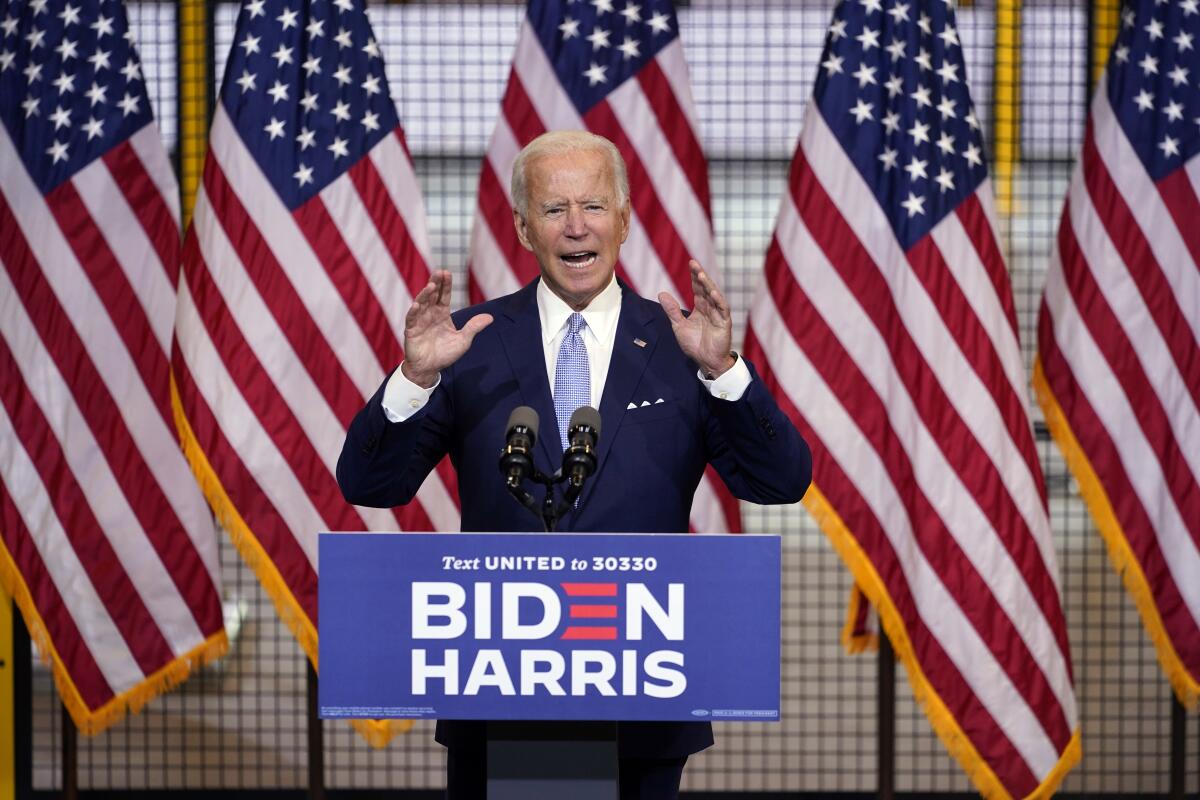
Trump’s campaign is betting that the fear of violence spreading into the suburbs “will be a greater fear than the fear of a spreading pandemic,” said Whit Ayers, a Republican pollster.
Ayers said events that affect people personally and directly have greater political import than events that do not, however, making Trump’s task more difficult.
“The pandemic affects almost everyone personally and directly,” he said. “The racial justice protests, as volatile as they are, affect relatively few by comparison.”
David Paleologos, who directs polling at Boston’s Suffolk University, said many voters have grown immune to Trump’s tweets and comments. He said the president risks turning some voters off in hopes of winning those worried about safety.
“One has to believe that there’s a calculus going on with who he alienates and who he connects with,” Paleologos said.
Trump’s supporters say he can make a valid argument that he has helped Black voters even as he rails against protests for racial justice.
“He can be two things,” said Ari Fleischer, a press secretary for President George W. Bush. “He can be part of a convention that properly and wisely celebrated his administration’s accomplishments on criminal justice reform and that had an array of Black speakers praising and endorsing the president — and at the same time be who he is.”
Trump’s perspective came through in an interview Monday with Laura Ingraham of Fox News, when he suggested a Kenosha police officer may have overreacted when he repeatedly shot Blake — whom Trump did not name.
“Shooting the guy in the back many times. I mean, couldn’t you have done something different?” Trump said. “He might have been going for a weapon, and, you know, there’s a whole big thing there, but they choke. Just like in a golf tournament, they miss a three-foot putt.”
“You’re not comparing it to golf, because of course, that’s what the media would say,” Ingraham interjected in an attempt to rescue Trump.
“I’m saying people choke,” he responded. “People choke.”
More to Read
Get the L.A. Times Politics newsletter
Deeply reported insights into legislation, politics and policy from Sacramento, Washington and beyond. In your inbox three times per week.
You may occasionally receive promotional content from the Los Angeles Times.
